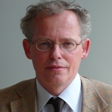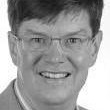Monday: EU Climate Policy EXPLAINED
Key element of the first day will be elaborating how expert knowledge can be made use of in shaping climate policies. Based on the experience of EU climate policy, the process will be described leading to effort sharing between countries and economic sectors in order to achieve climate objectives and targets. Ger Klaassen will present, based on the book he co-authored (“EU Climate Policy Explained”), approaches taken and lessons learned during years of interaction within the commission (between different DG’s, the commission’s “ministries”) as well as with the member states of the European Union. This will also provide exemplary insight to the policy mechanisms within the European Union in general. In group work, student teams will prepare and present in plenary how their research topics can feed into such policy – based on the specific concepts described in “EU Climate Policy Explained”, to which they will make themselves acquainted beforehand. Following an overview of existing options to minimize greenhouse gas emissions by Wilfried Winiwarter, students will actively take part in different positions or roles (e.g., negotiators for different countries) to live through climate negotiations with a view to understand the concepts discussed.
EU Climate Policy EXPLAINED (Jos Delbeke and Peter Vis, Eds.)
Contents: The EU is the region of the world where the most climate policies have been implemented, and where practical policy experimentation in the field of the environment and climate change has been taking place at a rapid pace over the last twenty-five years. This has led to considerable success in reducing pollution, decoupling emissions from economic growth and fostering global technological leadership. The objective of the book is to explain the EU’s climate policies in an accessible way, and to demonstrate not only the step-by-step approach that has been used to develop these policies, but also the ways in which they have been tested and further improved in the light of experience. The book shows that there is no single policy instrument that can reduce greenhouse gas emissions, but the challenge has been to put a jigsaw of policy instruments together that is coherent, delivers emission reductions, and is cost-effective. The book differs from existing books in that it covers the EU’s emissions trading system, the energy sector and other economic sectors, including their development in the context of international climate policy. Set against the backdrop of the 2015 UN Climate Change Conference in Paris, this accessible book will be of great relevance to students, scholars and policymakers alike.
Lecturer/Convenor
Ger Klaassen

Ger Klaassen is Policy Analyst on Strategy and Economic Assessment at the European Commission’s Directorate-General for Climate Action. Before joining the Commission, he worked as an economist at the International Institute for Applied Systems Analysis. He holds a PhD in economics from the Free University in Amsterdam, the Netherlands. He was Visiting Professor at Colorado College in Colorado Springs, USA, and the University of Economics and Business Administration in Vienna, Austria, teaching environmental economics and innovation.
Wilfried Winiwarter

Wilfried Winiwarter is a Senior Research Scholar with the International Institute of Applied Systems Analysis in Laxenburg, Austria, and faculty member of the DK Climate Change. Originally an atmospheric scientist and specialist in assessing the release of trace compounds into the atmosphere, his expertise was called upon to quantify current and potential future emissions of climate relevant greenhouse gases, specifically nitrous oxide in the GAINS model. This triggered his interest in investigating global biogeochemical cycles, focusing on the nitrogen cycle. The interaction between physical and social systems and their respective interferences now also serves as a major focus of his work. He serves as a Director of the European Centre of the International Nitrogen Initiative, and as a deputy chairman to the Climate and Air Quality Commission of the Austrian Academy of Sciences.






